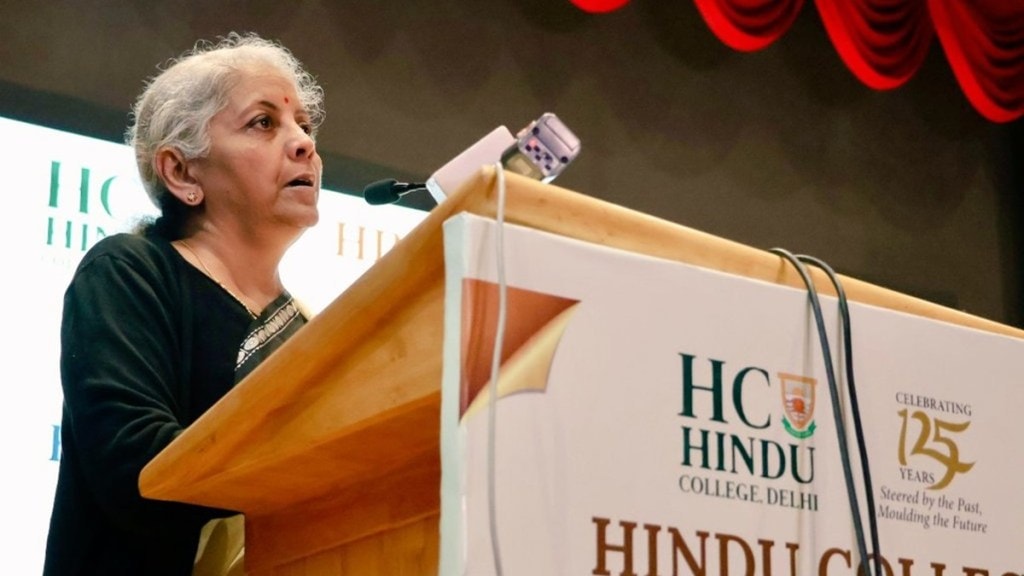Ahead of the interim Budget on February 1, Finance Minister Nirmala Sitharaman on Thursday said the Narendra Modi government will “do everything” for the economic uplift of the poor, farmers, women and youth.
The government is close to reaching saturation in implementing social sector schemes designed to provide basic necessities to the poor, she said,addressing the students of Hindu College here on the occasion of its 125th anniversary.
Prime minister Narendra Modi had said on several occasions earlier that for him, “the biggest four castes are poor, youth, women and farmers,” and asserted that his government’s priority would be to “respect and empower the poor and deprived.”
The statement followed several opposition political parties seeking to make the demand for caste census an electioneering issue, ahead of general elections in April-May.
Sitharaman noted that even earlier, governments had schemes of providing houses, roads etc. but the sense of urgency was missing. Nearly 50% of the population were devoid of fundamental things 50 or 60 years post independence, she said.
“Then (before 1947), the (struggle) was for political independence. Now, it’s economic independence (self-reliance),” Sitharaman said.
The government is empowering people by meeting their fundamental requirements without differentiating between people based on caste and religion, she said. “So, everything will be focused towards their (the four groups) betterment,” Sitharaman said. The interim budget will likely lay emphasis on pro-poor policies even while fiscal prudence is maintained.
The government could largely improve upon the ongoing schemes by tweaking them to add more beneficiaries or increase the benefits for certain sections of people. It may enhance the financial assistance for PM Awas Yojana-Gramin beneficiaries from Rs 1.3 lakh/unit to Rs 2.4 lakh. Similarly, with the PMAY-Urban scheme ending in March this year, the Centre may unveil a new Rs 60,000 crore interest subsidy scheme for urban housing for five years.
Among others, it might earmark around Rs 90,000 crore for the flagship Mahatma Gandhi National Rural Employment Guarantee Scheme (MGNREGS) in the budget estimate (BE) for 2024-25, an increase of 50% over 2023-24 BE, in a strong signal to the poor ahead of general elections.
“The country needs to have a kind of democracy where duty is taken as a good virtue and that’s why casting a vote should be our duty and not just a right. Be sure that you’re choosing the right person for making India a ‘Viksit Bharat’ by 2047,” she told students.
The minister said the government is not merely doing upliftment of the four groups’ upliftment by giving money, but through skills development and giving access to technology. For the poor, the government has launched a drive for saturation of schemes to give them pucca houses, piped water, electricity and road connection, she said.
